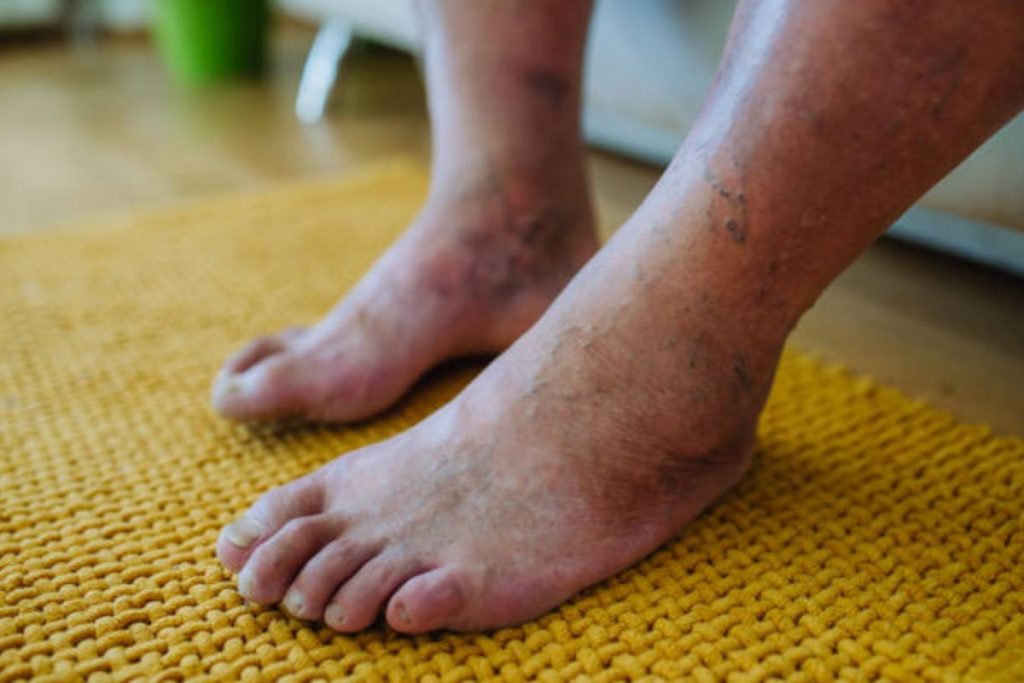Diabetic Foot Care
What Is Diabetic Foot Care?
Diabetic foot care involves regular attention to the feet to prevent complications associated with diabetes. People with diabetes are at higher risk of foot problems due to two primary complications:
Peripheral Neuropathy
Nerve damage that reduces sensation in the feet, making it harder to feel injuries, cuts, or blisters.
Peripheral Arterial Disease (PAD)
Poor circulation in the legs and feet, slowing down wound healing and increasing the risk of infections.
Professional diabetic foot care aims to prevent ulcers, infections, and, in severe cases, amputations.
Risks Associated with Diabetic Foot Problems
Foot Ulcers: Small cuts or blisters can develop into open sores due to slow healing.
Infections: Reduced blood flow and immune response increase the likelihood of infections, including cellulitis or osteomyelitis (bone infection).
Charcot Foot: A rare but serious condition where weakened bones in the foot fracture and deform due to neuropathy.
Amputation: In severe cases, untreated ulcers or infections can lead to tissue death, requiring amputation.
Calluses and Corns: Pressure points can develop calluses or corns, which may break down into ulcers if left untreated.
Infections: Reduced blood flow and immune response increase the likelihood of infections, including cellulitis or osteomyelitis (bone infection).
Charcot Foot: A rare but serious condition where weakened bones in the foot fracture and deform due to neuropathy.
Amputation: In severe cases, untreated ulcers or infections can lead to tissue death, requiring amputation.
Calluses and Corns: Pressure points can develop calluses or corns, which may break down into ulcers if left untreated.

How Can We Help With Diabetic Foot Care?
Routine Foot Assessments
Nail Care
We will safely trim nails to prevent ingrown nails or cuts that could lead to infection.
We will also manage thickened or fungal nails to reduce discomfort and risk of complications.
Callus and Corn Management
Our Foot Health Practitioner will gently remove thickened skin to reduce pressure points that could lead to ulcers.
Wound Care
We can clean and dress minor wounds to promote healing and prevent infections.If present, we will refer severe or non-healing wounds to a GP or diabetic foot clinic.
Advice on Footwear
Common with most foot complaints, we will recommend well-fitting shoes with adequate cushioning and support to prevent pressure sores or deformities.
If required, we may suggest orthotics or insoles to redistribute pressure evenly across the foot.
Education & Prevention
There are many precautions that people with diabetes can take at home to help reduce complications with their foot health, such as;
- Washing and drying feet daily, especially between toes.
- Applying moisturisers to prevent dry, cracked skin.
- Not walking barefoot to reduce injury risk.
- Daily self-examinations to detect issues early.
Monitoring High-Risk Patients
For those with neuropathy, PAD, or a history of foot ulcers, we will provide ongoing monitoring to detect and address issues before they escalate.
Foot Care For Everyone
Book An Appointment For Regular Diabetic Foot Care
Foot health practitioners play a vital role in preventing, detecting, and managing diabetic foot complications.
With regular care and patient education, the risks of ulcers, infections, and amputations can be significantly reduced, improving quality of life for individuals with diabetes.
With regular care and patient education, the risks of ulcers, infections, and amputations can be significantly reduced, improving quality of life for individuals with diabetes.
Book an appointment at The Barefoot Clinic for just £35 and our friendly practitioner will help you put your best foot forward.
Not Sure What You Need?
If you’re unsure what treatment you need, we’ll be able to uncover your symptoms and recommend the required treatment during your appointment. You can also send us a photo via WhatsApp to see if we can identify the issue in advance.
